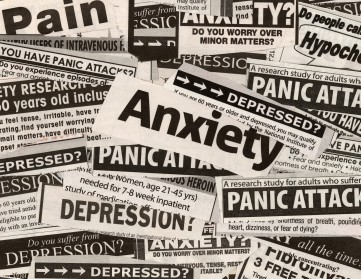Time has flown by, you do not know where. It was just yesterday that you were bewildered by all the changes happening in your body.
It was a painful process no doubt – the awkwardness, the discomfort and all the rest that goes with the adolescent years. Then followed the years of youth, the best years of your life.
Now all these years later, you are in a sense going through the reverse adolescence and are now entering the “M” years. Yes, menopause. The average person generally looks on the word with dread and fear.
We have heard from other women and read reams in endless magazines about this “dreadful” phase. Is it all really true? How are we going to be affected by it when our time comes?
Well there is no “one size fits all” answer to all of this. The best weapon against any threat is to be well informed, aware and mentally prepared. The first psychological step in the battle against menopause is to remember that this is a natural process and not a disease.
Menopause could occur anywhere between 45 – 55 years of age (on an average) give or take a few years which may vary based on various factors such as genetic disposition, general health conditions, whether the person has undergone a hysterectomy and whether the ovaries were removed (oophorectomy). Let us just look at a normal case scenario.
What is Menopause?
It is the cessation of the functioning of the ovaries – meaning the ovaries stop producing eggs, and there is a gradual but significant reduction of production of female hormones. This means the woman is no longer fertile and her child-bearing years are over.
The time of menopause is defined as the date of the last menstrual period. Menopause occurs over a period of years as a consequence of the normal aging process. (This is different in case a woman has undergone hysterectomy which is the removal of the uterus.
If her ovaries are left intact, she may not have a sudden menopause. But in case of women where the ovaries are removed, the onset of menopause will be sudden).
A person is typically considered to be menopausal when she has not had a period for the last one year. The transitional years around the actual menopause (last period) are known as the “perimenopausal” (around the menopause) years. This could start as early as 35 years and go on for as many as 10 or more years.
What are the symptoms of menopause?
There are many of them. Every women may experience some or many of these in varying degrees of severity. The most common include:
• irregular periods which may vary in frequency, duration and intensity
• hot flashes
• changes in moods
• night sweats
• increased stress
• tenderness (pain) in the breasts
• vaginal dryness
• decrease in libido (sexual desire)
• insomnia (lack of sleep)
• fatigue (tiredness)
• forgetfulness
• osteoporosis
• heart disease
• hypothyroidism
• weight gain
Are these really as terrible as they sound? A certain amount of discomfort will certainly be there, but there are ways to cope with them effectively.
Checkout the rest of the articles in this series:






